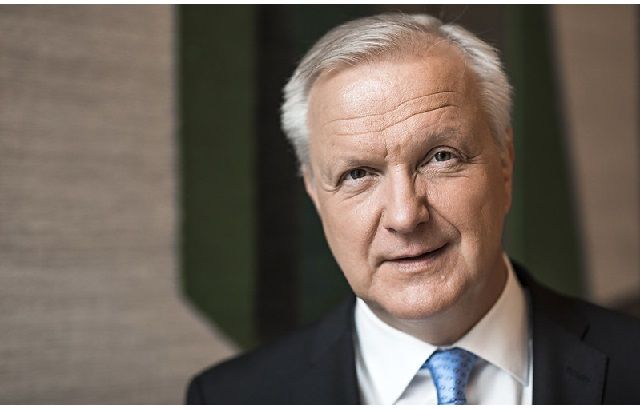The EU’s sustainable finance plans need to be kicked up a gear and push for greater allocation into green products, according to the governor of Finland’s central bank.
Olli Rehn warned in a blog that there are few indicators that the market is transitioning towards harmonised practices.
“A key question in sustainable finance is finding ways for reorienting investments more rapidly and effectively, but at the same time in a balanced manner, towards supporting emission reduction targets,” he wrote.
Mind the €180bn gap
Rehn says that a green transition can produce multiple benefits, including spurring economic growth and fostering the integration of the EU’s capital market.
To achieve its climate and energy targets for 2030, the EU has to close an annual investment gap of €180bn.
But “despite the upward trend, sustainable investments are, in euro terms, still not very significant compared with traditional investments”, Rehn says.
Too many cooks
The EU Commission adopted legislative proposals in 2018 to deliver its action plan to finance sustainable growth.
Its sustainable finance efforts are deemed progressive in international comparison, but they are still under negotiation.
“The EU is currently the most significant economy in the issuance of green bonds,” Rehn explains.
But sustainable financial products, such as green bonds, apply a variety of standards and hinder flow growth.
Similarly; standards for green and environmental, social and governance (ESG) linked loans by banks, which tie a loan to a company’s performance in climate or other targets, are missing, he says.
As a remedy, Rehn suggests that supervisory authorities assume a stronger role to catalyse the harmonisation of products and practices.
Costly carbon
Another key measure, he says, is the reduction of fossil fuel subsidies and the setting of a global carbon price.
Rehn is unconvinced by the European Green Deal, which was proposed by EC president Ursula von der Leyen, because he finds it limited in reducing carbon emissions outside of the EU.
The deal seeks to extend the emissions trading system and introduce a carbon border tax to avoid carbon leakage.
“Carbon pricing in the EU would thus not result in the shifting of polluting activity to countries outside the EU, as the same costs would be applied on products imported to Europe.
“Undoubtedly, these are all difficult issues politically, but they are so important that we cannot afford not to take action,” Rehn comments.
Finland currently holds the six-month rotating European Council presidency.
One of its priorities under its presidency is to strengthen the EU’s position as a global leader in climate action and promote sustainable finance.







